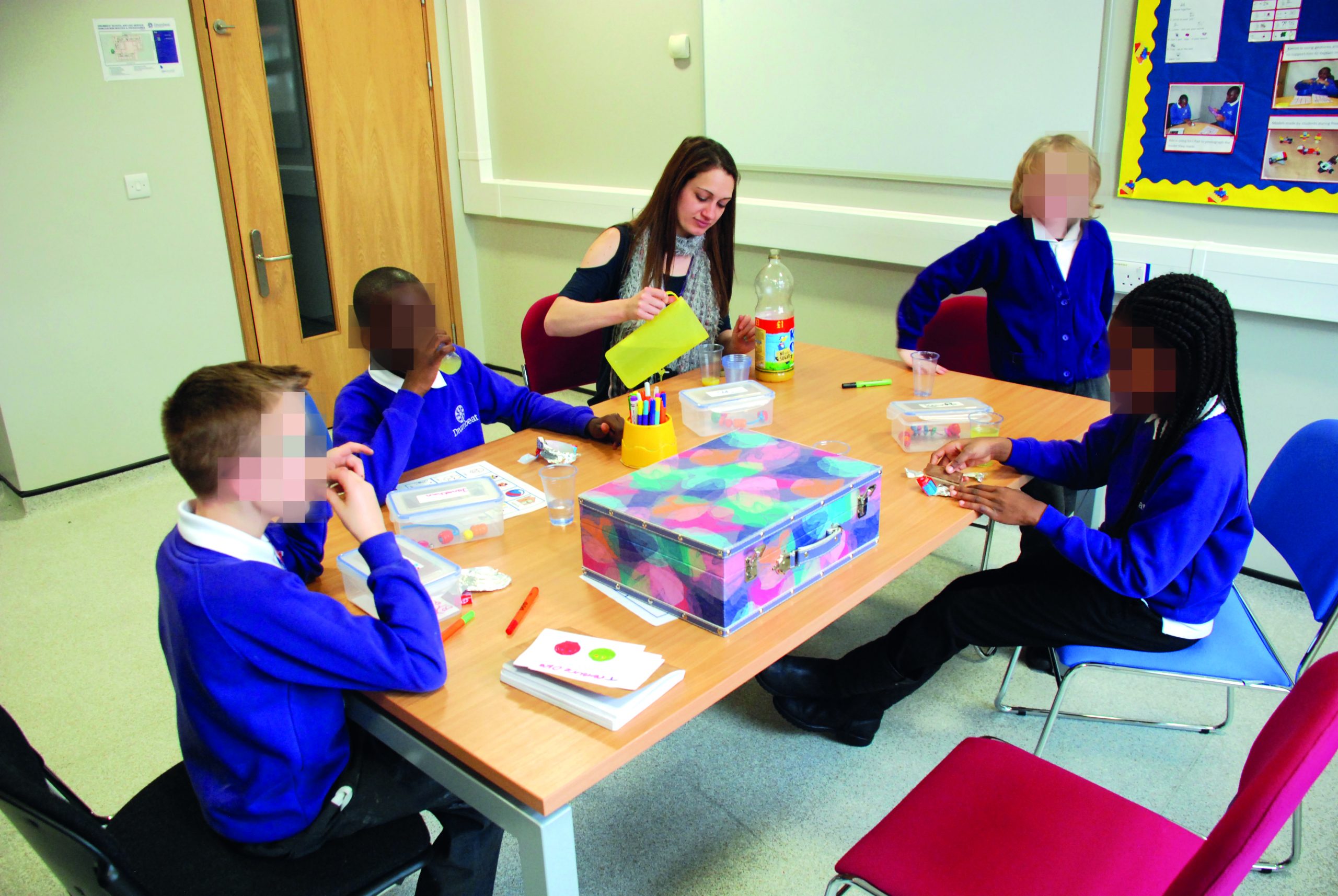Designing for children is a rewarding adventure, but it comes with its own set of challenges. Here are my 5 tips for design students user testing with children.
1. Plan, mercilessly
Plan every detail of your user testing. The more you plan, the more you can concentrate on the workshops. Make sure the first session is not vital, as you can guarantee it won’t go according to plan. This flexibility is important; you’ll learn from it then run the following sessions differently.
You may find that some children challenge the activity – this can be useful. If all the kids were uber-polite, it would be rather boring and detract from the research. Do have fun – whatever activity you do, make sure it’s fun for you, the kids and whoever else is in the room. You want to get invited back!
With the above said, it is a good idea to test out the research with a group of adults first. Before my user testing, I created four detailed personas of autistic children and ran a series of role-playing workshops with friends. This meant we could test the practical side of the workshop and refine the structure as we went along.
2. Show your passion when approaching schools
Speak with passion about your project, and getting schools onboard will be easy. Think about the value they (as a school, for the pupils) will gain from the research. This initial contact may feel like an interview, but remember that you are interviewing them too. Make sure that staff will be there to support you. They may be able to pay your research/travel expenses – ask them about this! Their reaction will be a good way to find out how much they value research.
Cold call that obscure family member whose son’s partner’s sister works in the school you’d like to research in, if that’s what it takes. If it means googling and writing to random addresses then this, of course, is fine too – you don’t need an ‘in’ via a family/friend. Go to their website, find the relevant contact details and email away!
Allow time for the schools to be slow at communicating. There may be a lot of back-and-forth before you even have a date in the diary. These teachers are incredibly busy, so your email may slip through the net – be patient and send a polite reminder after a week.
3. Do the legal stuff
Submit your DBS application through your university as early as possible! It should be free. Some schools will allow you to come in without a DBS certificate but require you to be supervised at all times. Use this as an absolute last resort as this is a pain for the school and a pain for you.
You will also have a research ethics board at your University who will need to approve any research before it can take place. This means submitting an ethical approval application containing a thorough breakdown of the research. Detail every measure you have taken to protect the participants (the children), the researcher (you) and anyone else involved. Writing this application is a useful process as it ensures you scrutinise and consider every aspect of the research.
Free templates and resources can be found online, and your supervisor may help you edit the application. Make sure to write using explicit language and repeat things multiple times to be as clear as possible. The board will likely reject your first application (with some comments on how you can improve), so allow for a couple of revisions to be made when planning! Writing is a time-consuming process and it can take weeks for the board to review each revision, so start as early as possible.
4. Help your future self: document everything
This bit is easy. Document everything. Become a ruthless documentation machine. You won’t regret it.
Your phone is your friend here: buy a tripod and video workshops; record interviews so you can transcribe them later; ask a friend or a teacher to take photos of the activity. All this means you can concentrate fully on the research and on the children.
(You need consent from the children and their parents for all the above)
5. Have fun
Try to stay in touch with your inner child as often as possible. This isn’t going to happen at 2am full of caffeine! Go for a day out, do something fun, read a book, exercise, whatever it is as long as it’s not work. If you are a slave to a project it risks ending up dull and adult. It can be hard to stay motivated when working on a single project for so long, so choose something that you enjoy.
Spend time with your course mates, discuss each others’ projects and play-test any prototypes as a group. Experiment with rules and see what different things you can do. Again, do some role-play and persona generation. Spend as much time with your end users as you can. With children, this includes the parents/teachers who will be using the product too!

